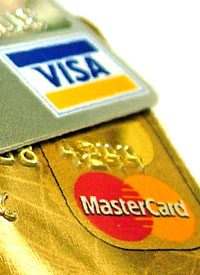
Credit card reform legislation that President Obama is expected to sign sometime over the Memorial Day weekend is a mixed bag, to say the least. Offsetting the deluge of new regulations Congress is set to impose on credit card issuers is a surprise, last-minute insertion lifting the federal ban on firearms in national parks wherever state laws permit. That insertion garnered strong bipartisan support.
Although President Obama’s personal hostility for private firearms ownership is well-documented, he is unlikely to balk at the provision, since many Democrat neophytes in the House from the South and West supported the measure. Many of those Democrats have already indicated to the Obama Administration in no uncertain terms that they will oppose any attempt to re-instate the notorious “assault weapons ban” of the Clinton era or other sweeping firearms restrictions. The president, unwilling to risk a divisive fight within his party, is apparently willing to go along, at least as long as other priorities, like the economy, command his administration’s attention.
Credit card issuers, however, are unlikely to share gun owners’ enthusiasm for the new bill. Included are provisions to prevent issuers from raising interest rates without a 45-day notice and to tighten restrictions on the issuance of credit cards to students. The bill will also ban fees for making payments by phone or Internet, and will not permit issuers to increase rates retroactively unless a payment is more than 60 days late. Those who are penalized with higher rates will have their rates restored to original, lower levels if they stay current for six months after a late payment.
All of this may be music in the ears of anyone who has ever missed a credit card payment and suffered the consequences, but the likely consequence of this bill will be higher fees, lower lines of credit, and much stricter standards for creditworthiness. Credit cards, after all, are an extremely high-risk enterprise with very high default rates, and high interest rates and heavy penalties are needed to offset the losses connected with issuing unsecured debt.
Leaving aside the wisdom of federal controls on a private enterprise like credit cards, this latest bill — as with so many others emanating from the present Congress and the Obama administration — is blatantly unconstitutional (except for the long-overdue provision on firearms in national parks, which rights another unconstitutional wrong first perpetrated under President Ronald Reagan), and should have been rejected on that basis alone. But our elected leaders in Washington have long since abandoned any notion of constitutional restraints on their powers. Convinced of the need to “do something” wherever crises crop up, our leaders will continue to expand their own powers until every sector of our once-free economy is smothered by federal rules, regulations, and restrictions — unless Americans regain a taste for personal liberty, which always includes the risks of failure alongside the rewards of success.



